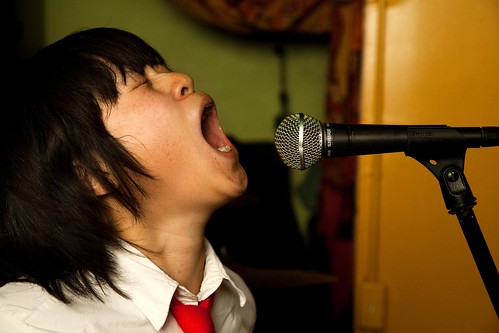[Disclaimer: I wrote a paper abstract for a panel on “Theorizing the Personal in Musical Ethnography” for the SEM (Society of Ethnomusicology) annual meeting in November 2011. I see this paper as the beginning of my #alt-ac or #indie-ac career as a scholar-performer and performer-scholar. Feedback is welcome!]
What is the relationship between scholarship and performance? What is the difference between scholar-performer and performer-scholar? This paper explores my experiences with practicing—in performance—intellectual ideas developed in my dissertation about Asian American participation in independent rock music. Compelled by the sounds and stories shared by the musician-colleagues during my 24-month close ethnographic engagement with members of two dozen bands of partial or whole Asian American membership, I started my band Dzian!. In this band, I work alongside my band mates to adapt and perform rock music from 1960s and 1970s Asia. With a mission to challenge the Anglo-American hegemony of rock music, and to inscribe Asia and Asian America into the rock music discourses, we introduce and make visible this obscure body of music to the local and regional popular music scenes.
I consider Dzian! a post-fieldwork, post-academic project of public scholarship. The band is a playground for me to experiment with the critical concepts related to race, ethnicity, and the postcolonial conditions that I formulated in my dissertation. In my presentation, I will offer a set of narratives that highlight my performative engagement with my dynamic and ambivalent (dis)identification as one-point-five-generation Taiwanese American. In a deeply reflexive manner, I will reflect on how I perform music to negotiate my struggle with orientalism and racial melancholia, as a constant minority outsider in the scene. I will describe how performing music has generated personal and collective reparations for the Asian American loss of cultural heritage and national belonging. Privileging the act of performing and music-making in the public, I argue for a fruitful manifesto for the role a scholar-performer, rather than a performer-scholar, enacting the ethics of scholarship as a social practice.



 bio
bio